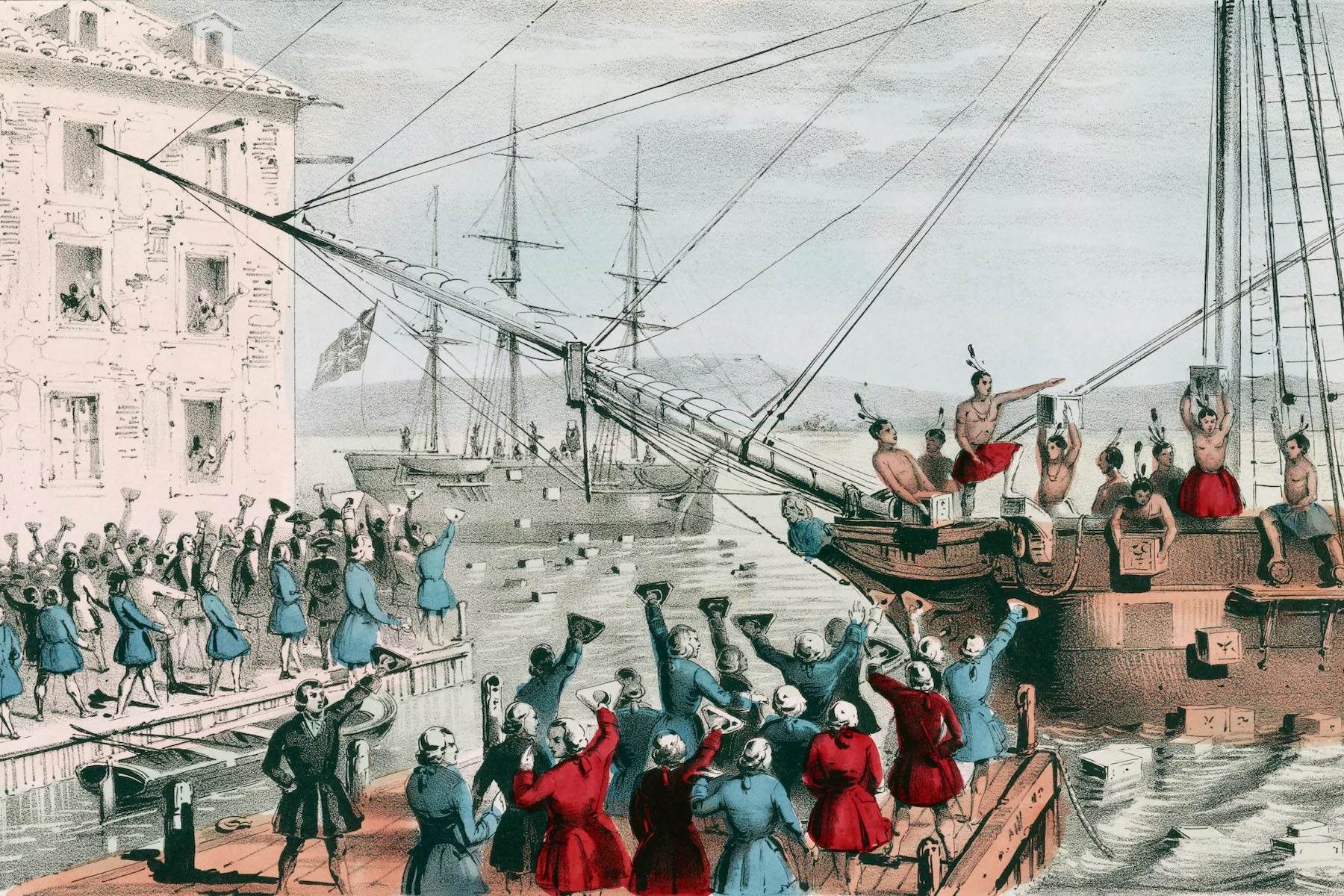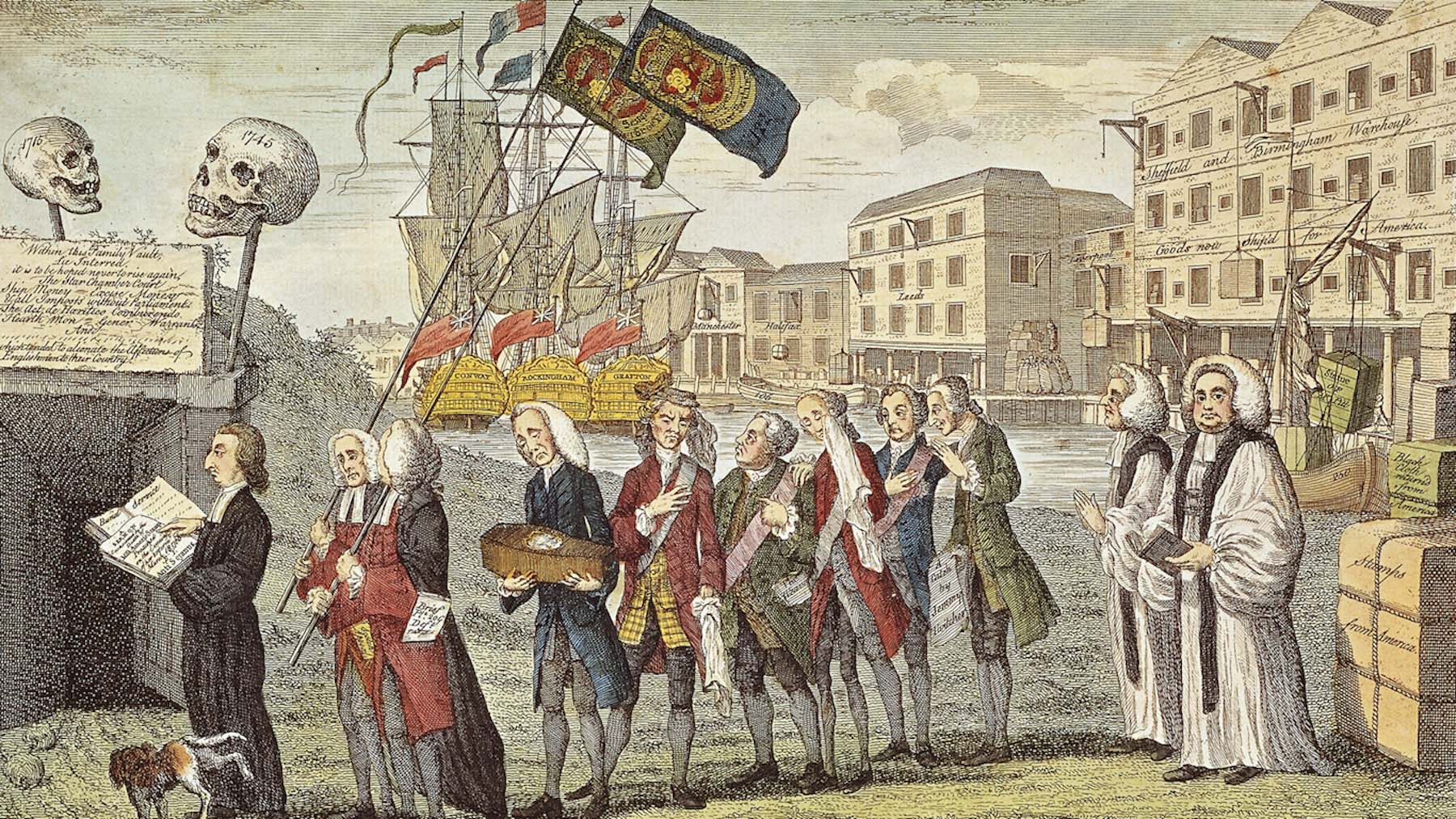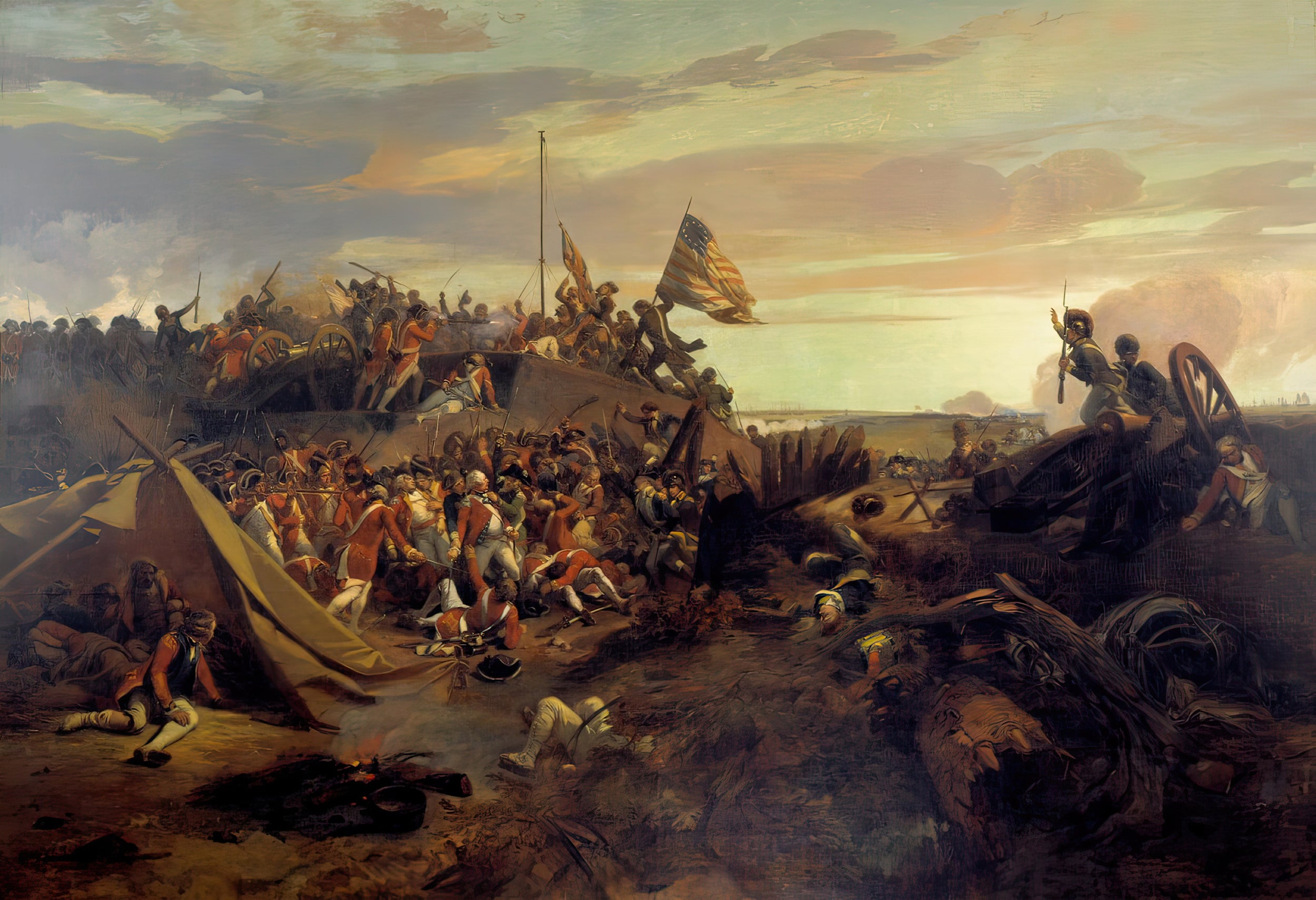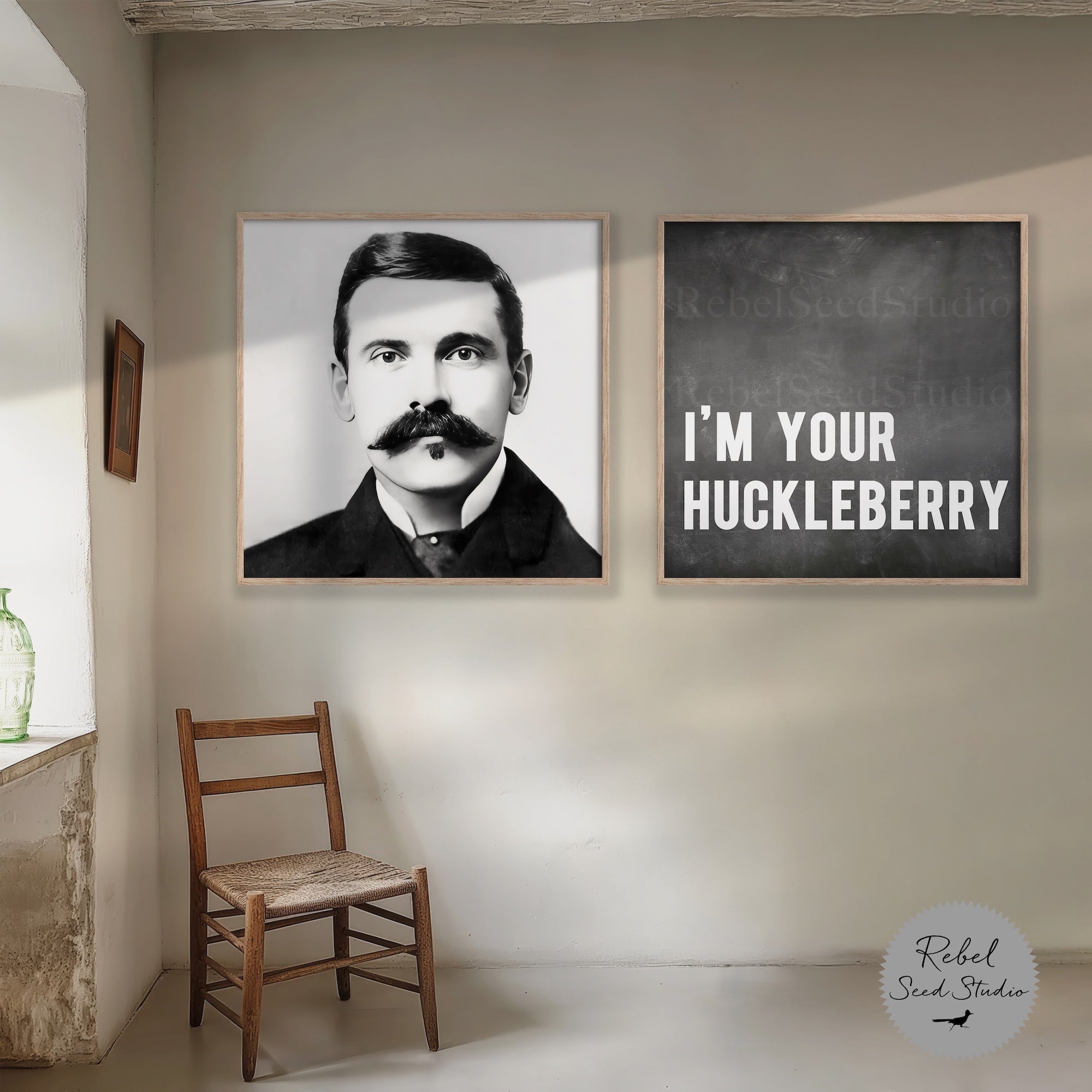
Samuel Adams & The Boston Tea Party (Historical Reprint)
Historical article reprinted from the book "American Heroes & Leaders" written by Wilbur Fisk Gordy in 1907.
Samuel Adams was born in Boston in 1722. His father was a well-to-do man, who filled a large place in the community. Samuel was a studious, indoor lad, with little fondness for sport of any kind. His father wished him to be a clergyman, but he preferred to study law. Since, however, his mother did not approve, he gave that up for a business life, eventually joining his father in the malt business.
When the excitement over the Stamp Act began, Samuel Adams was 42 years old. He was of medium size, with gray hair and keen gray eyes. Although his hands were tremulous, as if with age, his health was vigorous. Like Patrick Henry, he had but little aptitude for business. In time, he lost about all the property his father had left him.
In fact, Samuel Adams soon gave up all kinds of private business, devoting his time and strength to public life. As a result, he and his family had to live on the small salary which he received as clerk of the Assembly of Massachusetts. Poor as he was, however, no man could be more upright. The British tried to buy him, but found him the very soul of honor.
King George, much against his will, had to submit to the repeal of the Stamp Act by Parliament. But he was not satisfied. He could never carry out his scheme of personal government in England and in America if he allowed the colonists to have their way in this matter.
In 1767, therefore, through his tool, Townshend, Parliament levied new port duties on a few articles, including glass, lead, paper, and tea. These new taxes were hateful to the colonists because they were levied by Parliament, and because the money thus raised was to be used to their disadvantage in various ways. For example, some of it was to pay for maintaining in America a small English army. This army, the colonists believed, the King would use to compel them to do as he willed.
The opposition to the new taxes was just as bitter as it had been against the Stamp Act. Samuel Adams felt that only slaves would submit to such high-handed oppression. He urged the people of Boston and Massachusetts to join in refusing to import any goods from England as long as the new taxes were imposed by Parliament. They did so agree, and thus inflicted great injury upon English merchants, as they had done two or three years before.
These merchants suffered heavy losses, and again begged for a repeal. But the King could not understand the Americans. Thus far he had not been able to coerce them, he now made a shrewd attempt to outwit them.
Influenced by him, Parliament took off all the new taxes except the one on tea. "There must be one tax to keep the right to tax", he said. If he could only succeed in getting the Americans to submit to paying any tax - no matter how small - that Parliament might levy, he would carry his point. He therefore urged not only the removal of all taxes except the one on tea, but also made arrangements whereby Americans could buy their taxed tea cheaper than it could be bought in England and cheaper even than they could smuggle it from Holland, as they had been doing. No doubt the King had great faith in this scheme. "Of course," he argued, "the Americans will buy their tea where they can buy it cheapest, and then we will have them in a trap." But this was a huge blunder.
The East India Company arranged to ship cargoes of tea to Boston, New York, Philadelphia, and Charleston. When the tea arrived, the people in New York and Philadelphia refused to let it land, and in Charleston they stored it in damp cellars, where it spoiled. But in Boston, where the Tory Governor, Hutchinson, was determined to fight a hard battle for the King, the result was the famous "Boston Tea Party".
It was a quiet Sunday morning on the 28th of November, 1773, when the Darmouth, one of the three tea ships on the way to Boston, sailed into the harbor. The people were attending service in the various churches. "The Darmouth is in!" spread like wildfire, and soon the streets were astir with people, Sunday though it was, in old Puritan Boston.
Fearing that the tea might be landed, the committee of correspondence quickly got together and secured a promise from Benjamin Rotch, the owner of the Darmouth, that the tea should not be landed before Tuesday. On Monday morning an immense town meeting was held in Faneuil Hall, the "Cradle of Liberty". Five thousand men were present. But Faneuil Hall proving too small, the crowd had to make its way to the Old South Church. In addressing the meeting Samuel Adams asked, "Is it the firm resolution of this body that the tea shall not only be sent back, but that no duty shall be paid thereon?" With a great shout the men answered "Yes."
Samuel Adams and the people of Boston and the surrounding towns were determined that the tea should not be landed. Governor Hutchinson was equally determined that it should be. The advantage was with the Governor, for according to law the vessels could not return to England with the tea unless they received a clearance from the collector of customs or a pass from himself.
But neither the collector of customs nor Governor Hutchinson would yield an inch. For 19 days the struggle continued, growing daily more bitter. With a stubborn purpose to prevent the landing of the tea even if they had to fight, the Boston people appointed men, armed with muskets and bayonets, some to watch the tea ships by day and some by night. Six couriers were to be ready to mount their horses, which they kept saddled and bridled, and speed into the country to give the alarm to the people. Sentinels were stationed in the church belfries to ring the bells, and beacon fires were ready to be lighted on the surrounding hilltops.
The morning of December 16th had come. If the tea should remain in the harbor until the morrow - the 20th day - the revenue officer would be empowered by law to land it by force. Men, talking angrily and shaking their fists with excitement, were thronging into the streets of Boston from surrounding towns. By ten o'clock over 7,000 had assembled in the Old South Church and in the streets outside.
They were waiting for the coming of Benjamin Rotch, who had gone to see if the collector would give him a clearance. Rotch came in and told the angry crowd that the collector refused to give the clearance. The people demanded he get a pass from the Governor. Fearing for his personal safety, the poor man started out to find Governor Hutchinson who had purposely retired to his country home at Milton. Then the meeting adjourned for the morning.
At three o'clock a great throng of eager men again crowded into the Old South Church and the streets outside to wait for the return of Rotch. It was a critical moment. "If the Governor refuses to give the pass, shall the revenue officer be allowed to seize the tea and land it tomorrow morning?"
But while, in deep suspense, the meeting waited and deliberated, John Rowe said, "Who knows how tea will mingle with salt water?" A whirlwind of applause swept through the assembly and the masses outside the church. As daylight deepened into darkness, candles were lighted. Shortly after six, Benjamin Rotch entered the church and, with pale face, announced, "The Governor refuses to give a pass." An angry murmur arose, but the crowd soon became silent, when Samuel Adams arose and spoke, "This meeting can do nothing more to save the country."
This was plainly a concerted signal. In an instant, a war-whoop sounded, and 40 or 50 "Mohawks" or men dressed as Indians, who were waiting outside, dashed past the door and down Milk Street toward Griffin's Wharf, where the tea ships were lying at anchor. It was bright moonlight, and everything could be plainly seen. Many men stood on shore and watched the "Mohawks" as they broke open 342 chests, and poured the tea into the harbor. There was no confusion. All was done in perfect order.
The "Boston Tea Party" of which Samuel Adams was the prime mover, was a long step toward the Revolution. Samuel Adams was, at this time, almost or quite alone in his desire for Independence, and he has well been called the "Father of the Revolution". But his influence for the good of America continued far beyond the time of the "Boston Tea Party". Up to the last, his patriotism was earnest and sincere. He died in 1803, at the age of 81 years. Not as an orator, like Patrick Henry, but as a man of action, like Lincoln and Washington, had he a powerful influence over men. His was a life of distinguished service to his country.

































